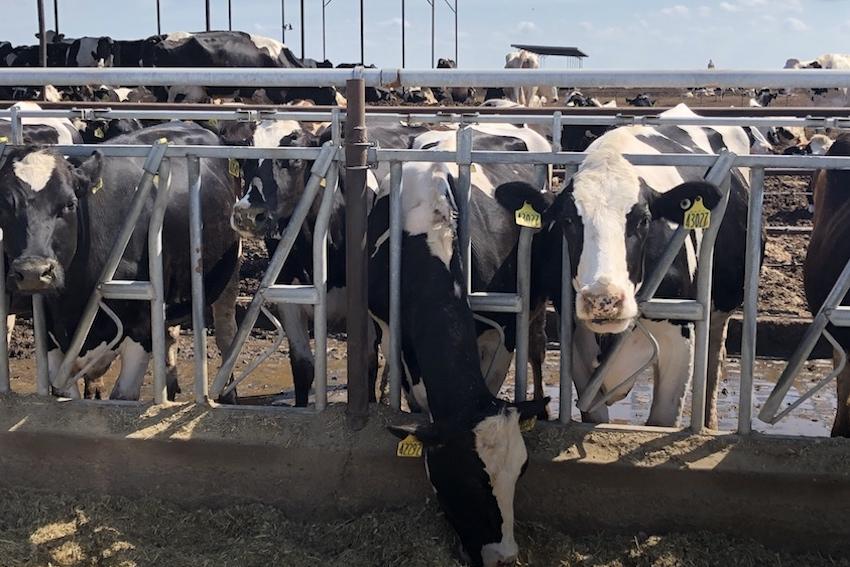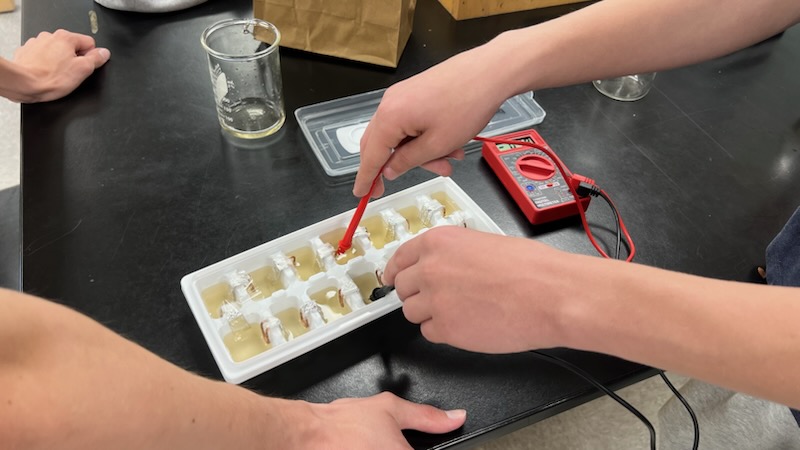American agriculture suffers under plummeting demand for goods
[media-credit id=”141″ align=”alignright” width=”232″] [/media-credit]
[/media-credit]
Over 20 million individuals in the US work as farmers or in agriculture-related vocations, losing many of their customers, such as restaurants and hotels, amongst COVID-19 concerns. Dairies dump thousands of pounds of milk down the drain because their production exceeds creameries’ and processing plants’ plunging demands.
Farmers find themselves donating crops to food shelters or plowing produce back into the soil, as they no longer profit from their food manufacturing.
In 2019, US farm bankruptcy hit an eight-year high, not only from economic strife but because their dirt stained hands have been replaced with farming technology and machinery, according to Reuters. Now with the spread of COVID-19, the farms take another proverbial punch to the ribs.
Restaurants and hotels, some of the main purchasers of dairy and farmed goods, shut their doors and severely cut funds to farmers across the US. This leads to thousands of farms going out of business and the continual decline of family farm life.
Dairy farmer Charlie DeGroot conveys the pressures of operating his agricultural business during the pandemic. He explains how the shelter-in-place mandate affects supply and demand, which in turn, shifts milk prices.
“The COVID-19 pandemic has negatively affected our milk prices,” DeGroot said. “Prices have largely been impacted by the food service industry being shut down. There has been a sudden shift from the need for products in restaurants and schools to the need for products in the grocery store.”

Amid the financial instability, farmers must still buy feed for their livestock. This becomes a problem for farmers who struggled to generate income before the coronavirus outbreak. DeGroot states that the animals still remain vital to the business and he continues to provide care for them.
“We are at a time of the year with peak milk production and that creates added stress to the processing facilities,” DeGroot continued. “The most important thing to note is that we are stewards of caring for our animals and we continue to feed and care for our animals 24-7. Our hope and prayer is that this pandemic will end soon and the economy will be able to get things back in balance.”
Sheltering-in-place inconveniences farmers by prolonging meetings and therefore reducing productivity. AG salespeople now perform sales meetings online, creating a more difficult method of demonstrating their product.
Almond farmer and Pest Control Advisor (PCA) Jeremy Fredriks works for Nutrein Ag Solutions. Fredriks continues to work full-time, helping farmers decide when to apply fertilizers and pest protection to their crops. He explains how he changes his day-to-day work life to abide by social distancing rules.
“What has changed is the way I communicate with my growers,” Fredriks said. “Prior to the virus we would meet very regularly to discuss things related to the crops being grown. Now we just talk on the phone or email. Most of my business is done face to face. With less face time, it has been difficult to communicate.”
Waste of farm goods becomes so severe that the US Department of Agriculture (USDA) sets aside $15 billion to keep farms up and running. The USDA plans to buy the extra products and distribute them to food banks. They hope the funds maintain the ability to keep the AG industry operating until the pandemic ceases.

Ryan Boertje, a 2013 Fresno State University alumnus with a degree in Agricultural Business, spends his sixth career year working for a vitamin mineral supplier based out of California. The company provides minerals and supplements to farms raising dairy, beef and poultry.
“Lower milk prices have made it difficult for some producers to see a return on investment,” Boertje said. “So obviously a drastic drop in milk price will affect all feed mills like us as well. Another thing affecting us is also the supply of certain ingredients coming over seas. Ships are quarantined and there is so much uncertainty whether products will deliver on time.”
Food processing plants also take a hit from the virus as they become hotspots for the virus if infected. A Smithfield pork processing plant in Sioux Falls, SD stayed active even after employees contracted COVID-19. Of the 3,700 employees, 644 tested positive when Smithfield finally closed doors. The outbreak at the factory is deemed responsible for 55 percent of total cases in South Dakota.
The AG industry is the main source of food for US citizens, and COVID-19 outbreaks continue to jeopardize its survival. While most major sites of AG production reside in rural areas, presenting a lower likelihood of contracting infection, incidents such as Smithfield still give reason for concern.
The Feather welcomes reader comments and would like to know how COVID-19 is affecting their food purchases, dining out patterns. Please share in the comment section below.
For more articles, read Earth Day promotes climate change awareness, raises support through livestreams and COLUMN: Exercise apps replace gyms as citizens shelter-in-place.








Bruce • Apr 24, 2020 at 6:39 pm
Great job Brayden, telling it like it is. Nice work with the research too.
Anne Stuckenschmidt • Apr 24, 2020 at 2:08 pm
Thank you for writing this very informative article. Your article made me think about the many ways the farming and food production industries are being impacted by covid-19. Great job!
Sherry Olguin • Apr 24, 2020 at 12:39 pm
Eye opening article on the wide effects of this virus. Thanks Brayden.
Marie • Apr 23, 2020 at 9:51 am
Excellent article Brayden, and very true.